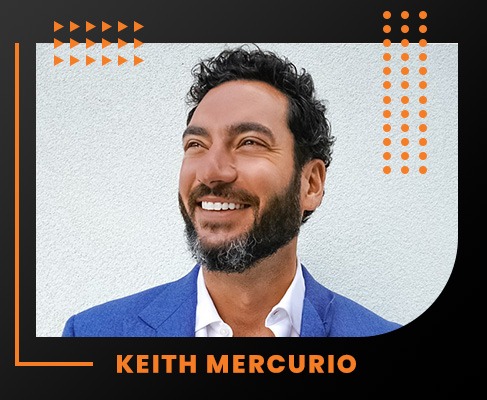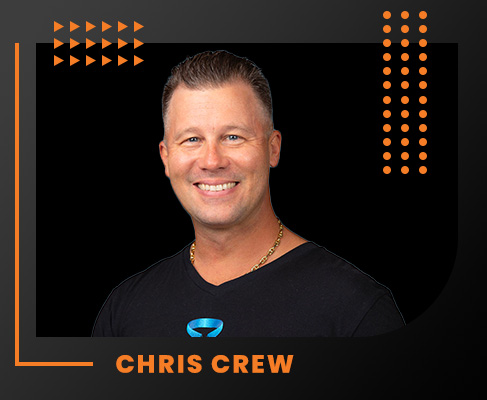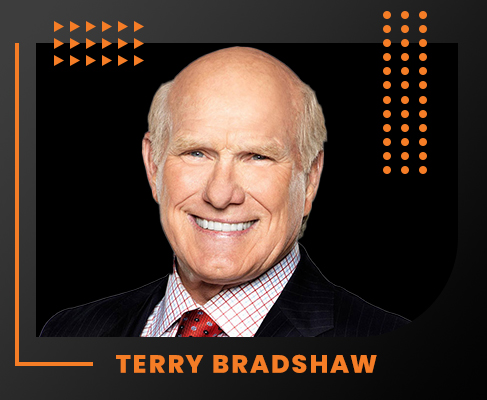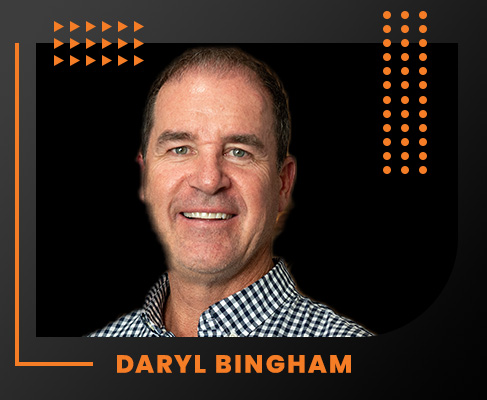Back for his second appearance on To The Point is Keith Mecurio, Sr. Director of Executive Success at ServiceTitan and CEO & Founder of Ethical Influence Global! In his first appearance, Keith talked to us about powerful thinking for positive results. Today’s conversation is a little different than our normal episodes, but it’s perhaps even more universally applicable in your life.
We’ve all had problems communicating at work, at home, and throughout our everyday lives. Most of us really do want to improve our communication skills. But how? During his interview with Simon Sinek at Pantheon 2022, Simon was bringing up the point to Keith that you have to make people feel heard. That is certainly true, but is that the end of it? Keith takes it a step further: are you just trying to make some “feel” heard, or are you genuinely listening to them? There’s a big difference there, and that’s what our conversation today is all about.
Influential Listening
In this two-part series, we’re going to take a look at what influential listening means, and how to achieve it through 5 steps. First, let’s get some context behind the conversation. If you were trying to teach someone how to be a better listener, what would you say? For many, the advice might be “be a more attentive listener”. Keith points out that this isn’t the most effective advice. See, being attentive is an outcome. It’s a result. It doesn’t tell them how to achieve it. It’s like telling someone to be more confident.
Another common suggestion might be to say “be an active listener”. Well, the problem with this, Keith suggests, is that most of us have heard of this phrase before. When the human brain hears a term that it’s already familiar with, there isn’t any curiosity. People tune out. This is the problem with well-known phrases and terms that a lot of teachers and speakers and leaders don’t realize. Yes, we should be attentive. Yes. we should be active listeners. But what we’re going to try and accomplish here is how to be an influential listener.
1. Intentionality of Presence
Let’s say you’re about to have an important conversation with your spouse. Or maybe you’re at work, and one of your employees needs to communicate with you. What steps are you taking to create an environment that is conducive to genuine communication? Is your phone beeping and buzzing? Are you facing a window? Are you in a place with other distractions? These things can take away from the enviroment we’re trying to create in order to be present and attentive. Step one is simply to be mindful of these things.
If you’re someone who thinks they can multitask and can handle all of the distractions…stop kidding yourself. Sure, you might be able to switch from one thing to another with ease, but the person you’re trying to communicate with will know they aren’t getting your full attention – because they aren’t.
2. The Physiology of Listening
Something you’ll hear Simon Senek talk about is the physiology of listening. He’ll recommend that you learn to listen in almost an expressionless way. That doesn’t mean having a blank stare, either. What needs to be understood is the enormous impact the physiology of your listening has on the speaker. Think about this: for thousands of years before advanced spoken language and for millions of years of evolution, body language is how communication was done. Posturing, facial expressions, it’s all we had. And to survive, we had to react to sounds, sights, motions, and emotions all faster physically than mentally. The human mind is no different today.
What we’re doing physiologically matters while we’re listening. Did you know that the shortest nerve ending in the human body is from the brain to the brow? That means that the fastest way to communicate is through your eyebrows. A furrow, raising the brows…you’ll communicate in lightspeed your doubt or interest with your eyes and eyebrows. Imagine an employee telling you about a challenge they are facing with a customer, and you furrow your brow a bit. They slow down, and stop telling the story they were planning on telling because they can see you’re already disagreeing with what you’re hearing. They actually change what they are saying based on your body language. This is what we’re talking about when it comes to the physiology of listening.
What is your body language telling the speaker, and are you giving them a chance to truly communicate what they want to with you? Or are you altering what they are going to say without even realizing it?
3. The Influence of Intent
Now that you’re aware of the impact the physiology of your listening has on the speaker, the influence of self comes next. It’s impossible to intercept your body’s reptilian responses in the moment, however. So how are we supposed to achieve this? It happens before the conversation even takes place. That’s why the third step is understanding the influence of your intent. The intent you have going into the conversation will change everything.
Once you’re clear on the intent you have, your body language will follow suit. Are you entering the conversation with the intent to prove someone wrong, or to demonstrate how smart you are? Your intentions are going to show up in your body language, and that will negatively affect the speaker. On the other hand, showing up with genuine curiosity and an intent to understand, you’ll naturally have a different set of physiological reactions. To summarize, it’s not so much about being aware of the impact your body language has and attempting to change it in the moment, it’s about changing your mental state through intent beforehand so that your physiology follows suit.
Join Us for Part 2!
In part two of our series, we’re going to cover the last steps and explore the true definition of influential listening. At the 2022 RYNOx, Chris was interviewing Mike Tyson when Iron Mike said “consistency kicks determination’s ass”. Listening and communicating effectively is no different! You have to practice and put in that effort. Be sure and join us next week for part two of our chat with Keith!



